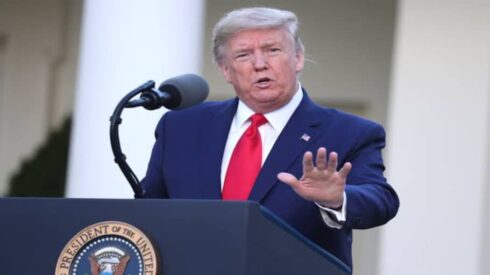As the world awaits Donald Trump’s major trade policy announcement, there remains significant uncertainty about the extent of the tariffs and which countries will be targeted. While Trump has consistently pushed for an aggressive trade strategy, details on the precise tariff percentages and the specific nations affected have been kept under wraps.
Reports suggest that the tariffs could range between 10% and 20%, with some advisers hinting at even steeper levies. The lack of clarity has left businesses, investors, and governments on edge, fearing economic disruptions. Some sources indicate that China, the European Union (EU), and Mexico could face the highest duties, while others suggest a universal tariff across all imports.
With global markets reacting cautiously, speculation continues over whether Trump’s tariffs will be designed to pressure rival economies or serve as leverage in renegotiating trade deals.
Trump’s Rationale: Protecting U.S. Manufacturers or Risking Economic Fallout?
Trump and his allies argue that the tariffs will serve as a much-needed boost for American manufacturing, encouraging consumers to prioritize domestically made goods. They claim that decades of globalization have eroded the U.S. industrial base, leading to job losses and an increased trade deficit.
However, economic analysts caution that these tariffs could backfire. A broad-based tariff increase would likely lead to higher costs for American businesses that rely on imported raw materials and goods, which could, in turn, push prices up for consumers. Critics warn of a potential trade war, as retaliatory measures from major U.S. trading partners could stifle economic growth.
Moreover, past tariffs imposed during Trump’s first term led to strained relations with China and the EU, affecting industries such as agriculture and automobiles. The question remains whether this new wave of tariffs will reignite trade disputes or force trading partners to the negotiating table.
Europe and the UK Brace for Impact, Prepare for Retaliation
The European Union has already signaled its readiness to retaliate should Trump impose tariffs on European goods. EU officials have warned that American exports, including agricultural products, whiskey, and motorcycles, could be targeted in response.
In the UK, Prime Minister Keir Starmer has urged a measured response, stating that Britain will take a “calm approach” rather than reacting hastily. While ongoing discussions with Washington seek to minimize the UK’s exposure, experts believe that Britain will not be immune to the economic shock.
Chancellor Rachel Reeves acknowledged that global tariffs could harm the UK’s trade-driven economy, while Foreign Secretary David Lammy cautioned that the country must “prepare for the worst.” Talks between London and Washington continue, with hopes of securing an exemption or at least mitigating the impact on key industries.
White House Indicates Openness to Last-Minute Negotiations
Despite the tough rhetoric, the White House has suggested that Trump is still open to discussions with trade partners. White House officials have confirmed that “quite a few” countries have reached out to Trump on the eve of the announcement in an effort to negotiate exemptions or delays.
This signals that the administration may be willing to adjust some aspects of the tariffs if key allies present viable counterproposals. Nonetheless, Trump’s stance remains firm: he has repeatedly emphasized the need for reciprocal trade policies and hinted that the tariffs could be used as leverage to secure better trade terms for the U.S.
With the announcement expected at 16:00 EST (21:00 BST) in the White House Rose Garden, the world watches closely to see whether Trump will launch a full-scale trade confrontation or leave room for diplomatic resolutions.
Higher Prices on the Horizon: What This Means for American Consumers
One of the most immediate consequences of the new tariffs could be rising costs for American consumers. Many economists predict that tariffs on imports will lead to price hikes in various sectors, including automobiles, beer, and fuel.
The auto industry is particularly vulnerable, as car manufacturing involves cross-border supply chains, with parts and assembled components moving between countries multiple times. If tariffs are imposed, those costs will likely be passed on to consumers, making cars significantly more expensive.
Similarly, increased levies on imported raw materials could affect industries like brewing and energy, driving up the prices of beer and fuel. While Trump insists that these measures will incentivize domestic production, businesses argue that shifting manufacturing back to the U.S. is not an overnight process.
As Trump prepares to make his historic announcement, the world waits with bated breath, knowing that his decision could reshape global trade dynamics for years to come.














